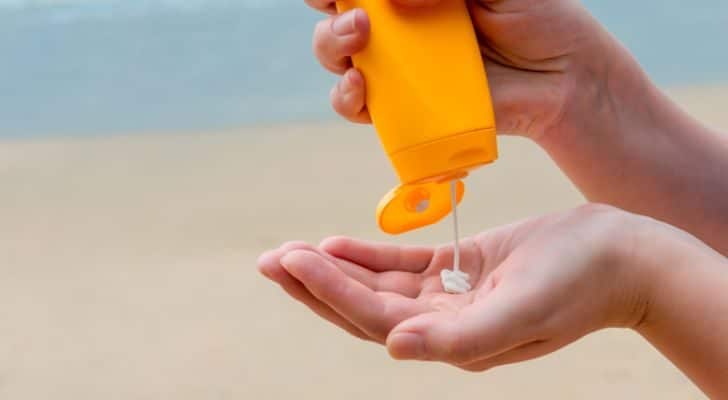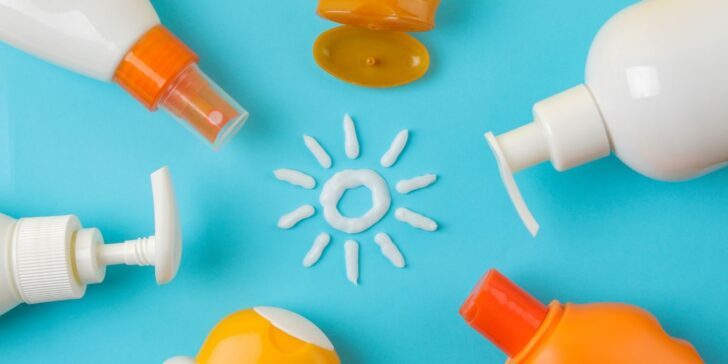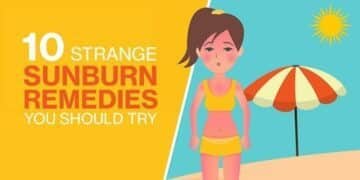Like everything, the sun has its fair share of pros and cons.
It gives you vitamin D, but at the same time, it can cause sunburn or skin cancer. That’s why sunscreen is a must, no matter what your skin tone is.
Although, there’s more to know about sunscreen other than its ability to protect your skin from the Sun, like what type of sunscreen people with sensitive skin should use and how to prevent a white cast when applying sunscreen.
So, get ready because here are 25 facts about sunscreen that will save your skin!
The difference between chemical and physical sunscreen is that the former has ingredients that absorb UV rays before they penetrate the skin. The latter, on the other hand, reflects ultraviolet (UV) rays away from your skin.
People with sensitive skin should use mineral sunscreens containing either zinc oxide or titanium dioxide, as chemical ones can trigger skin irritation.
A “broad spectrum” label indicates that the sunscreen you’re buying can block both UVA and UVB radiation.
Applying enough sunscreen is vital for sun protection, as not putting enough sunscreen on can cause a lower Sun Protection Factor (SPF).
UVB rays are the type of UV rays responsible for sunburn. Dermatologists generally suggest buying sunscreen with an SPF of 30, as it protects your skin from 97% of the Sun’s UVB rays.
Despite sunscreens blocking the sun‘s UVB light (which causes vitamin D production), numerous studies have concluded that using them won’t lead to a vitamin D deficiency.
Once sunscreen expires, it’s effectively just a moisturizer since it no longer has UV protection. In other words, using expired sunscreen can still lead to sunburn or skin cancer.
Franz Geiter, the inventor of sunscreen, created it in 1938 after getting sunburned while climbing a mountain on the Swiss-Austrian border.
One of the commonly missed areas for applying sunscreen is the lips. You can protect this part of your face from the sun by using a lip balm or lipstick with an SPF of at least 15.
Relying on sunscreen alone to protect yourself from the sun’s harmful effects isn’t enough. Dermatologists also advise wearing sun-protective clothing and avoiding direct sun exposure during peak UV hours (10 am – 4 pm).
You should still wear sunscreen even if you’re indoors, as UV rays can still pass through window glass.
Even if it’s not sunny outside, you still need to wear sunscreen since 80% of the sun’s UV rays can still hit your skin on cloudy days.
Oily sunscreens can block pores, causing acne breakouts. You can prevent this by checking if a sunscreen has non-comedogenic ingredients, like zinc oxide and titanium dioxide.
Regardless of whether you’re using a physical or chemical sunscreen, you have to apply it around 20-30 minutes before going outside to give it time to dry and be effective.
Avobenzone is one of the reasons why most sunscreen irritates your eyes. It’s an ingredient added to sunscreen that converts UV rays into heat, which is less harmful to the skin.
Sunscreens that contain retinol not only protect your skin from the sun’s UV rays but also prevent wrinkles due to retinol’s anti-aging effects.
You can still get a tan after applying sunscreen since it doesn’t fully protect your skin from UV rays.
There’s a term called “the shot glass rule” when applying sunscreen. It states that the amount of sunscreen you put on your skin should be equivalent to a full shot glass, or about one ounce (29.6 milliliters).
Sunscreen should generally be reapplied every two hours, as it wears off and becomes less effective as time passes by.
Many sunscreens are sweat and water-resistant, as sweating or swimming can wear off the protective layers of sunscreens, making them less effective. So remember, when you hit the beach, reapply sunscreen if you’re sweating or after swimming – even if it’s water-resistant!
You may need to apply sunscreen underneath clothing because some clothes, like cotton and linen, have a poor ultraviolet protection factor (UPF). Some examples of fabrics that don’t easily allow UV radiation to pass through them are polyester and wool.
There’s less chance of getting a white cast on your skin if you opt for chemical sunscreen — a white cast is a white residue you typically see after applying mineral sunscreens. But if you do use one, tapping or patting the sunscreen on your face, and letting it settle for a while, makes the white cast less noticeable.
Wearing sunscreen isn’t recommended for infants under six months old since it’s better to make them avoid sun exposure altogether. This is because their skin is still too sensitive during this stage of development.
When using spray sunscreen, you should spray it on your hands rather than directly on your face to prevent irritating your eyes and lungs – you can accidentally inhale the sunscreen if you spray it on your face.
Chemical sunscreen should be applied before your moisturizer, as your skin has to absorb it first to be effective. However, if you’re using a physical sunscreen, you must put it after moisturizing since it needs to sit on top of your skin to achieve sun protection.

And now you know that simply using sunscreen isn’t enough to protect your skin from the sun’s harmful effects.
You must also be aware of the amount of sunscreen you need, how to apply it properly, and when to reapply.
Relying only on sunscreen for sun protection is like thinking you only need to exercise to live a healthy lifestyle. So, make sure to follow these tips on how to protect your skin from the sun.
Now, who’s ready for the beach?


















